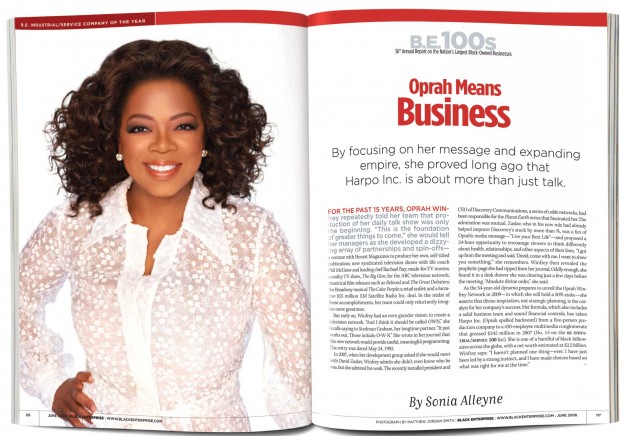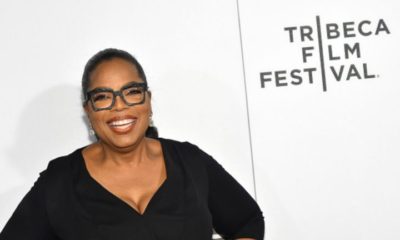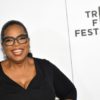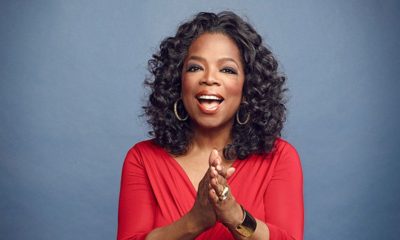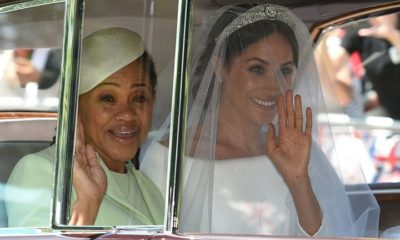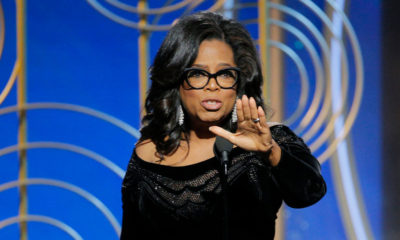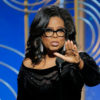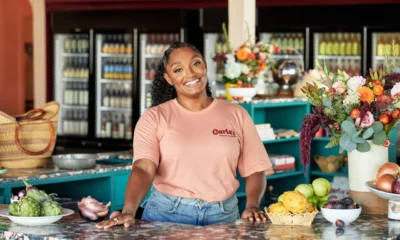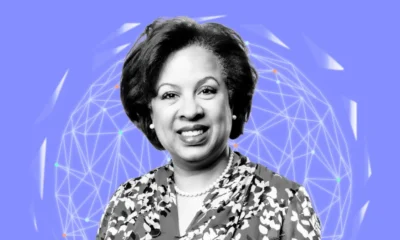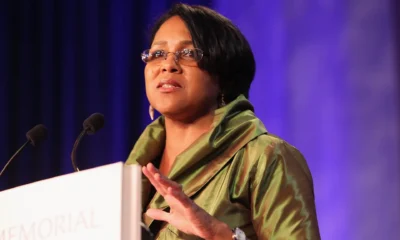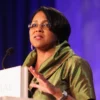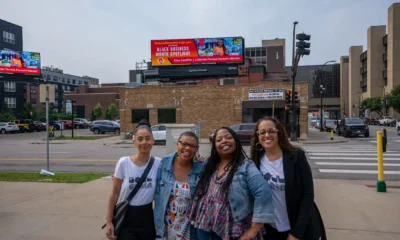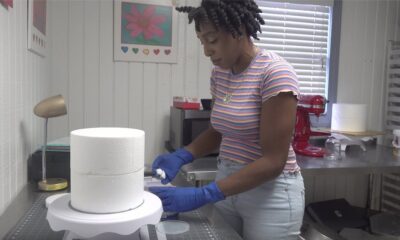Black Women in Business
45 Great Moments in Black Business – No. 22: Oprah Winfrey’s Becomes First Black Woman Billionaire
The queen of talk becomes a business legend
This year, BLACK ENTERPRISE celebrates the 45th anniversary of its roster of the nation’s largest black-owned businesses—The BE 100s. To commemorate the significance of this collective’s widespread impact on black business and economic development as well as American industry over four decades, we have presented 45 milestone moments. As part of this tribute, we continue our yearlong countdown.
Today we reveal No. 22 in the web series “Great Moments in Black Business.”
1986: Oprah Winfrey launches The Oprah Winfrey Show and within two years negotiates a distribution deal with syndicator King World, acquiring the rights to the nationally syndicated program. That groundbreaking deal launched her entertainment empire and BE 100s mainstay Harpo Inc. and made her the first black female billionaire in North America.
When it comes to empowering others, using her gut to make savvy business moves and building a media conglomerate from scratch, no one compares to Oprah.
An uncanny entrepreneurial drive, impeccable timing, and unfaltering endurance are tools that elevated Winfrey to become one of the world’s most powerful and influential leaders. Her remarkable business achievements serve as an inspirational model for an untold number of African American entrepreneurs.
The multi-Emmy Award winner’s 25-year stint as host and producer of The Oprah Winfrey Show (1986-2011) made her a household name. At one point, the top-rated talk show reached more than 40 million viewers weekly in the United States and was licensed to 150 countries.
According to Biography, she made her foray into talk TV by beating out Phil Donahue, one of the category kings at the time. When Winfrey launched her show in 1986 as a nationally syndicated program, it gained placement on 120 channels and had an audience of 10 million people. The program grossed $125 million by the end of its first year with Winfrey receiving $30 million.
As BLACK ENTERPRISE magazine reported, a 1988 deal to acquire the rights to her talk show brilliantly displayed Winfrey’s business acumen. In negotiations, she proposed purchasing the show from ABC through a syndication agreement with King World; she agreed to continue to air the show for five years on the network’s stations. The Oprah Winfrey Show was sold as a lead-in to local news, one of the most profitable time slots in TV. Winfrey gained complete creative and financial control of her program—a feat accomplished by only the late Johnny Carson.
As she structured her groundbreaking deal, she launched Harpo Studios, becoming the third woman—behind silent film star Mary Pickford and comedienne Lucille Ball—and only African American female entrepreneur to achieve that milestone within the U.S. entertainment industry.
The talk show was just the start of new ventures for the business mogul. Over the decades, she launched an array of partnerships and spin-offs such as the venture with Hearst Magazines to produce her own, self-titled publication; a slate of syndicated television shows; made-for-TV movies; and the Broadway musical, The Color Purple, to name a few. And of course, Winfrey has a major focus on impactful philanthropic projects that include The Oprah Winfrey Leadership Academy for Girls in South Africa
Born in rural Mississippi to an unmarried teen mother, she grew up in poverty. She dropped out of college to pursue a career in media. But the move obviously paid off.
When Harpo Inc. (Oprah spelled backward) was named as BE Company of the Year, she credited divine inspiration—not strategic planning—to her company’s ability to reach stratospheric heights. That spiritual blueprint catapulted Harpo Inc. from a five-person production company to a 430-employee multimedia conglomerate that grossed $345 million in 2007 (No. 14 on the BE INDUSTRIAL/SERVICE 100 list). One of several black billionaires across the globe, the journalist-turned-entrepreneur had an estimated net worth of $2.5 billion. Winfrey told BE: “I haven’t planned one thing—ever. I have just been led by a strong instinct, and I have made choices based on what was right for me at the time.”
By 2011, Winfrey launched OWN, The Oprah Winfrey Network, a cable channel co-owned by Harpo Studios and Discovery Communications. When it debuted Jan. 1, 2011, it was available in 85 million homes. It included Oprah.com, a website offering women’s lifestyle advice with 6.5 million unique users monthly and about 7 million members.
It has not all been smooth sailing. In July 2012, Winfrey told ABC News about the turbulence of the network’s first year and what she had to do to keep it operating. “I don’t know of a worse week of my entire life,” Winfrey said in the two-part documentary of her first year as OWN’s CEO. “I certainly did not expect the velocity of schadenfreude—meaning people sort of lying in wait for you to fail, or make a mistake.” She decided to lay off 30 employees and cancel Rosie O’Donnell’s talk show, providing evidence of the challenges of running a network 24/7. Additionally, OWN suffered more problems in 2012 though Discovery advanced it hundreds of millions of dollars.
In one of the successful moves to expand its audience and visibility, OWN partnered with Tyler Perry, creator of the Madea franchise and another media mogul in his own right, to provide the network with a lineup of hits like The Haves and the Have Nots.
Winfrey, who became the first black female anchor before the age of 20, rebounded. In 2013, Deadline.com reported that Discovery CEO David Zaslav told analysts that their joint venture with Winfrey was “now cash flow positive and starting to pay down the investment Discovery made in the venture.”
Winfrey, now 63 with an estimated worth of $3 billion, is not considering retirement any time soon as she still churns out projects. Such fare as Greenleaf, a drama about a family-run megachurch engulfed in scandal, and …
Please read original article- 45 Great Moments in Black Business – No. 22: Oprah Winfrey’s Becomes First Black Woman Billionaire



